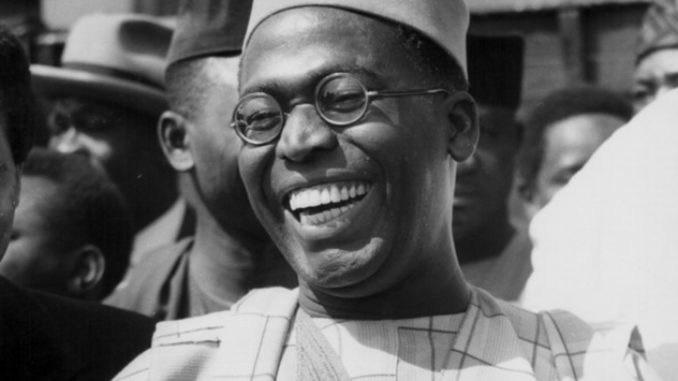
There is the need to assess current election campaigns of Nigerian politicians. This comes against the assumption that the politicans’ argumentative and persuasive propositions are often laced with barefaced invalidity and incorrectness aimed at deceiving the voters. This was even more noticed in the last (2023) general elections than it had ever been before in the history of elections in Nigeria.
I sometimes marvel at the paradoxicality of people spending so much time listening to politicians aspiring to rule the country where such politicians spend massive time simultaneously boosting their already deflated integrity and tearing down their opponents instead of setting a worthy agenda for our dear country. I wonder how often politicians employ the combinatorial tactics of self promotion and attack/accusation to bamboozle the electorate, adroitly forcing them to fall for their prank hook, line, and sinker. I sincerely feel that Nigerian voters need enlightenment in recognising the deceits of our politicians to avoid falling for their gambadoes.
One thing that is as clear as daylight is that politicians cannot boast of performing their duties well without constant communication. Hear Awo on this: “Debate is indispensable in a democracy because it is the only means of ensuring that blind and unthinking partisanship does not become the dominant factor in public life.” Thus, a core element of political campaigning in which politicians participate to manipulate voters’ behaviour while the voters decide is issue discussion.
With issue discussion comes the kernel – rhetorical strategies which have been found to be contingent upon situations. Three most important appeals recognized by the Greek philosopher Aristotle are logos, ethos, and pathos with which the communicator (politician) attempts to persuade the audience (voters) to embrace his point of view.
Logos is the most decent of the appeals because of its use of logic to persuade. Logos, literarily translated from Greek means ‘word.’ It refers to persuasion by logic, otherwise known as argumentation. Logos relies on constant logical argument with sound supportive evidence like statistics, facts and figures, and data analysis.
Awolowo recognises this fact when he states: “I have thus far – in my younger day, through trial and error, and now by the employment of the scientific method – striven to base all my actions both in private and in public, on sound theoretical principles.”
It is noteworthy that, as decent as argumentation is, it has often been manipulated by Nigerian politicians. As argued in my book, Essentials of Effective Writing, this manipulation is usually carried out through logical fallacies like sweeping generalisation, hasty generalisation, argumentum ad hominem (attack on personality instead of the issue), argumentum ad populum (telling the people what they want to hear), etc.
The second type of strategy or appeal is through ethos, the Greek word for ‘character.’ This method refers to the communicator’s (politician’s) appeal to the audience (the voters) through his claim to credibility. Ethos encompasses the tone of the politician’s message, his expertise, his education, his business and even his reputation and fame.
Ethos refers to the strategy adopted by the politician to persuade the voters to listen to him through a positive claim to his past experience, his expertise, and his puritan morality. Unfortunately, most politicians in Nigeria do not possess the qualities they flaunt. Coming from someone looking for the people’s votes, this method is more often used in Nigeria to manoeuvre the voters.
The third type of appeal is through pathos, the Greek word for “suffering.” It is an appeal to emotion or feelings as opposed to logic. It is basically a method by which the speaker appeals to the emotions and sentimentalities of the audience so as to make them take actions that will favour him. I have noticed that in Nigeria, the most predominant pathos often used is appeal to primordialism.
It is pertinent to point out that politicians often use logos, ethos, and pathos inappropriately to hookwink and confuse the electorates.
If Nigerian politicians are placing great emphasis upon ethical and logical proofs, the voters must be able to ascertain that such politicians are endued with puritan morality. Because this is difficult to ascertain most times, the voters must be assisted, probably by the opponents and the media, to pre-empt what the politician is likely to say that may be untrue.
Also, where the politician is actually upright but knows that his opponents are out there to attack him by playing him down, pooh-poohing his claim to honesty and integrity and repudiating his policies, the onus is on him to address the audience ahead of his presentation on what the opponents are likely to infer about his attitude. Quite often, attack message is deployed by the opponent against a contender for a political office by lying against him and dubbing his past performances as miserable, negligible, pitiful, and derisory.
The method I want to recommend to tackle the preemptive invectives and innuendoes of politicians is inoculation strategy. This strategy prepares the mind of the voters about the untruths and half truths that are likely to emanate from the politicians ahead of the communication encounter. I recommend this proactive strategy because it can create or control a damage or attack rather than just responding to it after it has happened.
In order to align themselves with credible candidates ahead of elections, I recommend that the attention of voters must be drawn to two strategies of the politicians – the canonising strategy that savours of influencing the audience by presenting their manifestoes in an hyperbolic favourable way and the charlatanistic strategy of discrediting the politicians in the opposition.
These two strategies have gained an alarming rate in contemporary Nigeria because of the politicians’ preoccupation with shadow rather than substance. It is finally submitted that inoculation strategy should be a ready tool to give voters awareness ahead of every election and neutralize the politicians’ mendacious propaganda.
Dr. Babatunde, a legal practitioner, wrote from Zagreb, Croatia, Eastern Europe.


Be the first to comment